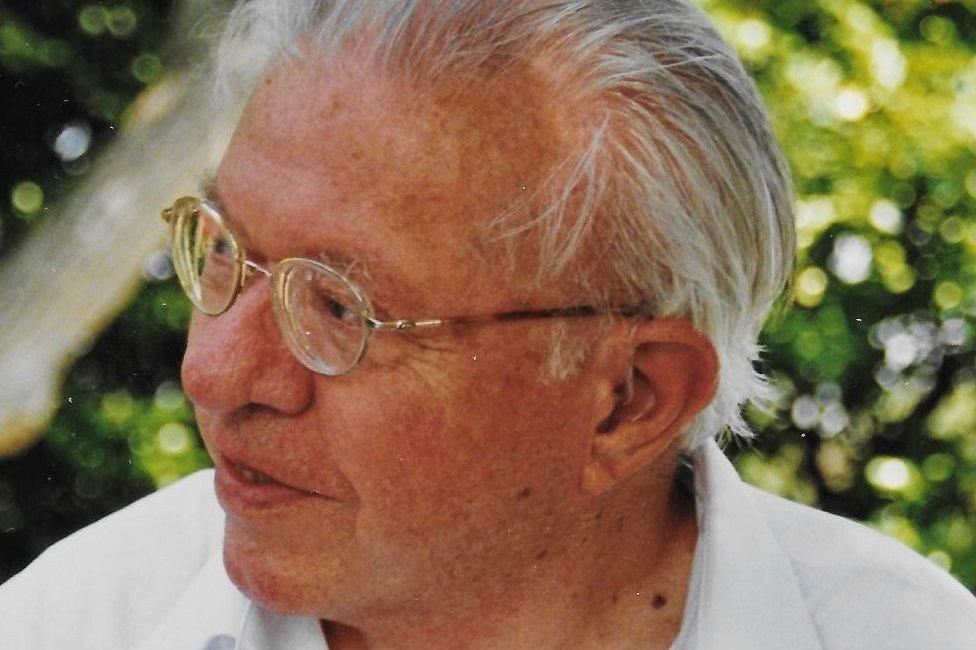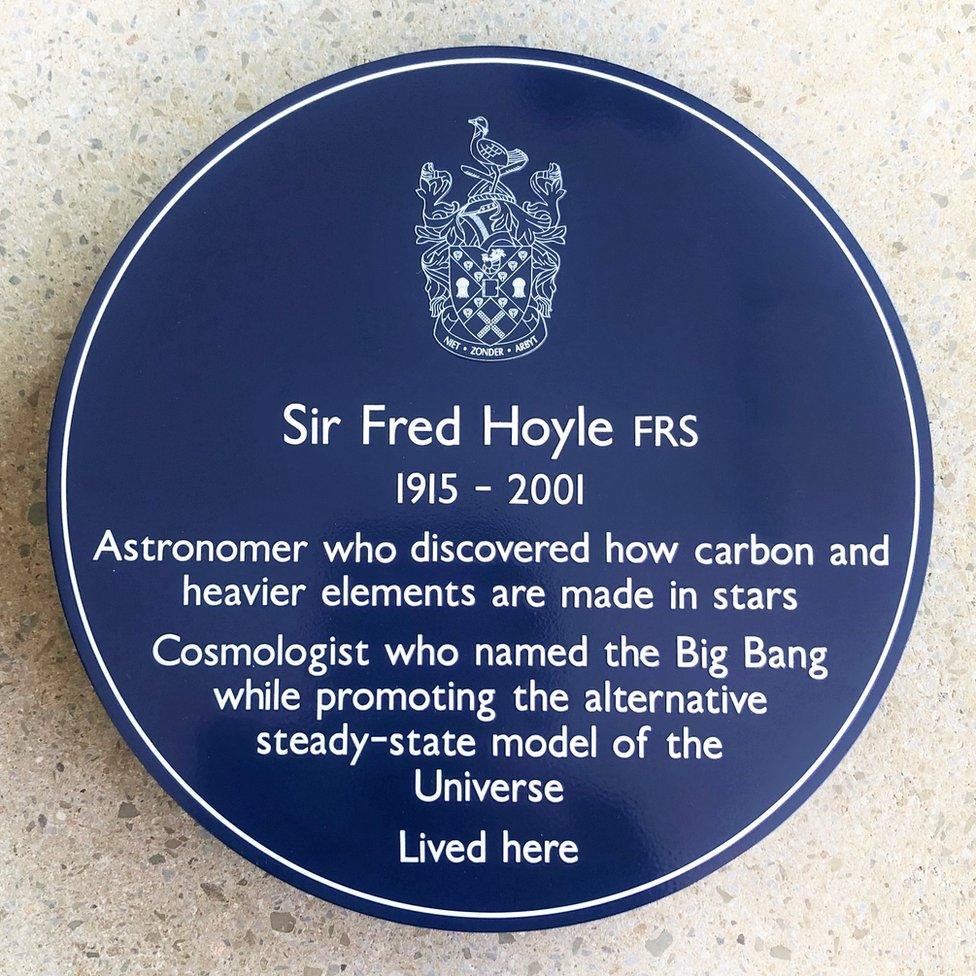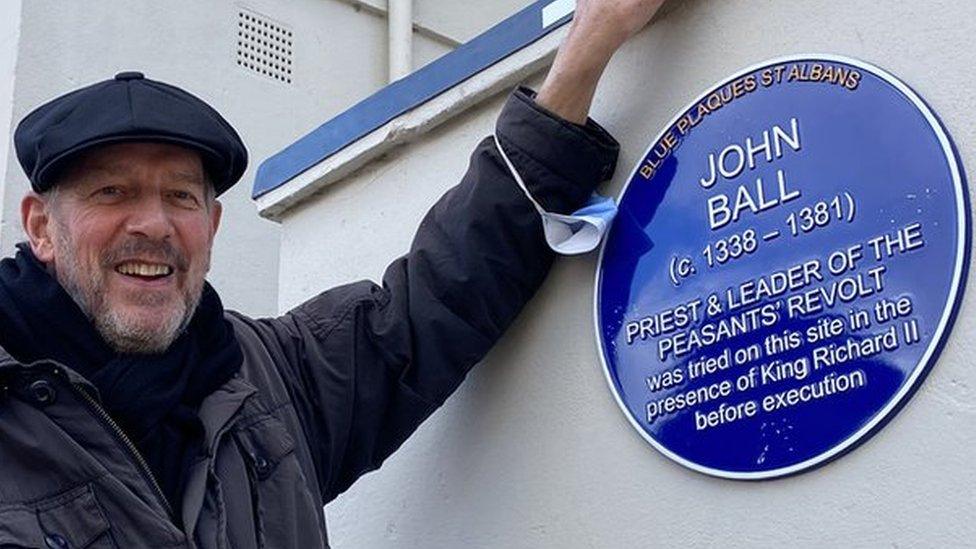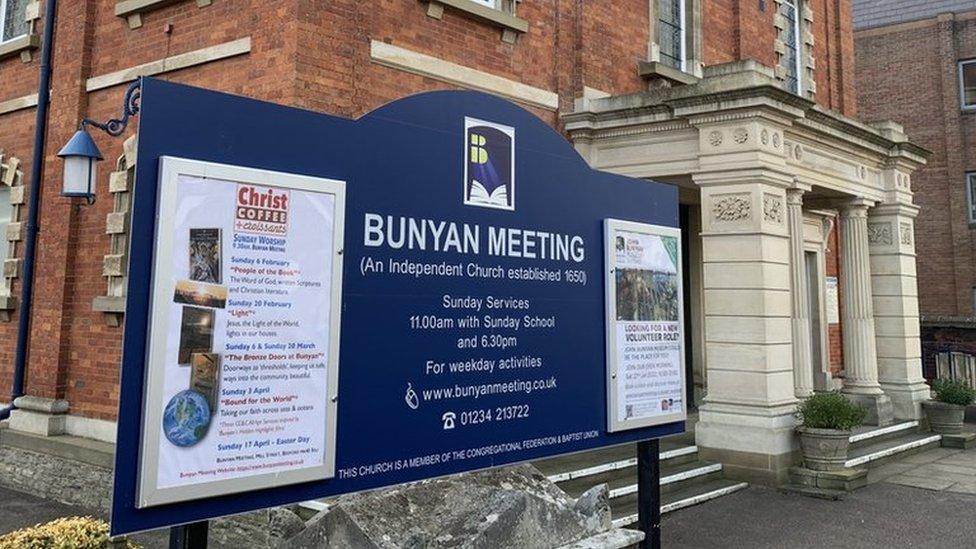Blue plaque to honour Cambridge University 'Big Bang' scientist
- Published

This photograph of the eminent scientist Sir Fred Hoyle was taken in summer 1999, two years before he died
A blue plaque will honour the astronomer and cosmologist Sir Fred Hoyle, who coined the term "Big Bang".
It will be erected on a wall of the house where he lived in Great Abington, Cambridgeshire, from 1946 to 1956.
Sir Fred discovered how carbon and all of the heavier elements were created by nuclear reactions deep inside stars, and then scattered through space in stupendous explosions.
He received a knighthood in 1972 for his contributions to astronomy.
James Littlewood of the charity Cambridge Past, Present & Future, which runs the plaque scheme, said Sir Fred's work was "so influential in helping us to understand the universe we live in".
Sir Fred, who died in 2001, grew up in Gilstead, a village near Bingley in West Yorkshire, where he attended the grammar school.
In 1933 he arrived in Cambridge after winning admission to read mathematics at Emmanuel College.
In 1946 he showed how very high temperatures inside massive stars led to nuclear fusion reactions that created carbon and the heavy elements from helium.
He continued to work on this concept for the next 10 years, becoming an expert on the origin and distribution of the chemical elements in the universe by exploding stars.

The plaque to Sir Fred will go on a wall of his former home in Great Abington, near Cambridge
During the 1950s and 1960s, Sir Fred captivated the public with his ideas on the nature of the expanding universe and its origin.
His "steady-state theory" was his response to those who concluded that the universe had a beginning.
The steady-state universe was perceived as eternal and unchanging, with new matter being created to fill the voids as the galaxies became further apart.
The term "Big Bang" was conjured up for the public listening to his BBC radio broadcast on 28 March 1949, which he used to refer to the alternative theory to the "steady-state".
Sir Fred was also well-known for his radio and television broadcasts in the 1950s, as well as a number of popular science and science fiction books.
In 1967, he founded the Institute of Theoretical Astronomy in Cambridge.
The Hoyle family, who lived at Ivy Lodge in Great Abington from 1956, remained there for a decade until moving to Clarkson Close, Cambridge.

Find BBC News: East of England on Facebook, external, Instagram, external and Twitter, external. If you have a story suggestion email eastofenglandnews@bbc.co.uk, external
- Published25 February 2022

- Published11 February 2022

- Published16 September 2021
